The first week of the trial of the former Minneapolis police officer charged with murder in George Floyd's death concluded Friday with the longest-serving member of the police department testifying that it was "totally unnecessary" for Derek Chauvin to kneel on Floyd's neck for more than nine minutes as he lay handcuffed on his stomach.
Kneeling on Floyd's neck while he was in the prone position was "top-tier, deadly force" that didn't need to be used in that situation, testified Lt. Richard Zimmerman, who joined the department in 1985.
"If your knee is on a person's neck, that can kill him," Zimmerman said.
Zimmerman, who leads the department's homicide unit, also testified that once Floyd was handcuffed, he saw "no reason for why the officers felt they were in danger, if that's what they felt. And that's what they would have to feel to be able to use that kind of force."
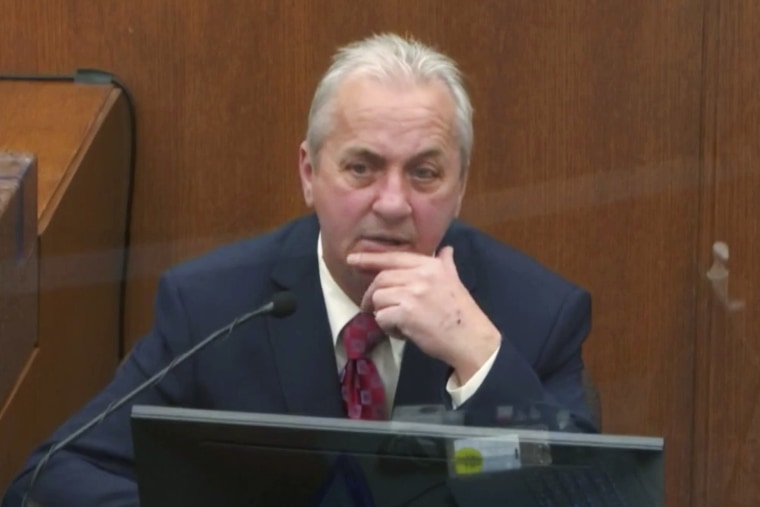
Under cross-examination, Chauvin's attorney, Eric Nelson, noted that Zimmerman has not worked as a patrol officer for several years and does not teach defensive tactics. Zimmerman testified officers had not been trained to kneel on a person's neck.
His testimony, along with that of more than a dozen other witnesses for the state, including the young woman who recorded the viral video that brought national attention to Floyd's death, contributed to what some legal experts say was a strong week for the prosecution.
Mary Moriarty, the former chief public defender of Hennepin County, where Chauvin is being tried on charges of second- and third-degree murder and second-degree manslaughter, said "the prosecution had an exceptional week" and that the defense's goal "should have been to avoid any self-inflicted damage" — a challenge she said the defense did not meet. Three other officers — Thomas Lane, J. Alexander Kueng and Tou Thao — are charged with aiding and abetting second-degree murder and manslaughter and are scheduled for trial in August.
"For whatever reason, the defense asked a number of unfortunate questions, which allowed more damaging testimony to be heard by the jury," Moriarty said.
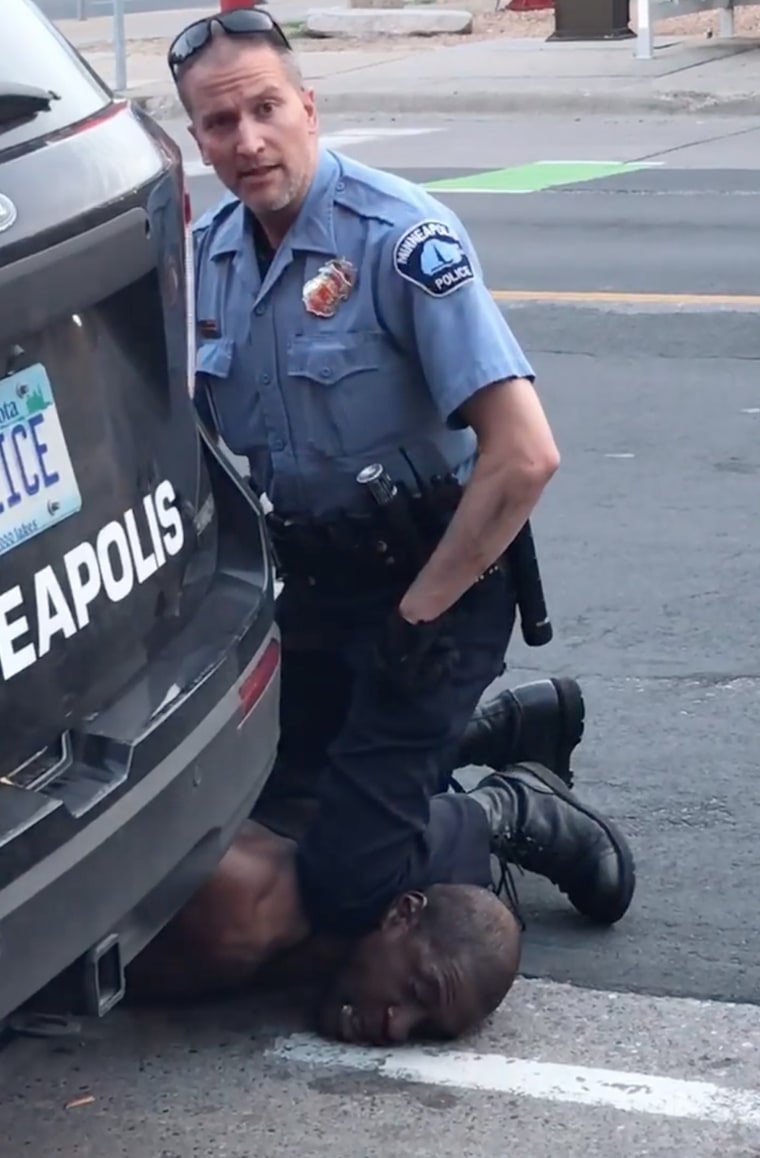
One such example was Tuesday, when Nelson asked 18-year-old Darnella Frazier — who recorded a video of Chauvin as he knelt on Floyd's neck and uploaded it to Facebook last May, igniting international protests over racism and police brutality — if the video had changed her life.
The prosecution objected but was overruled, and Frazier, who was 17 at the time of the fatal arrest, answered that it had.
"It was then left hanging as though we were supposed to infer that her video made her a celebrity, I guess," Moriarty said. "But clearly the defense didn't know the answer — a cardinal rule in cross-examination — and the state asked her how it had changed her life."
Frazier told prosecutor Jerry Blackwell she sometimes lies awake at night "apologizing and apologizing to George Floyd for not doing more and not physically interacting and not saving his life." And in an apparent reference to Chauvin, she added, "But it's like, it's not what I should have done, it's what he should have done."
"When I look at George Floyd, I look at my dad," Frazier said. "I look at my brothers. I look at my cousins, my uncles because they are all Black. I have a Black father. I have a Black brother. I have Black friends. And I look at that, and I look at how that could have been one of them."
On the day of Floyd's death, Frazier said, she had been walking to Cup Foods, a convenience store, with her 9-year-old cousin to get some snacks when they came upon the arrest. A cashier at the store suspected Floyd used a fake $20 bill to buy cigarettes and one of his colleagues called 911.
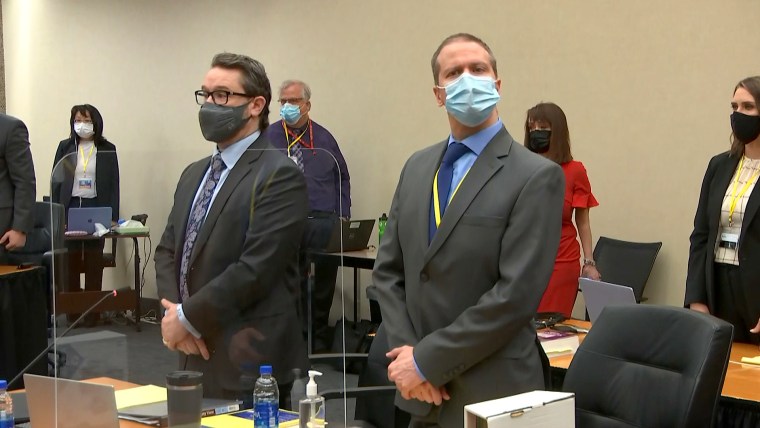
9 minutes, 29 seconds
In his opening statement, prosecutor Blackwell told jurors that Chauvin knelt on Floyd's neck for 9 minutes, 29 seconds. The time has fluctuated. In an initial complaint, it was recorded as 8 minutes, 46 seconds, which became a rallying cry for months at protests in Minneapolis and across the country.
During his opening statement, Nelson claimed Floyd's death was caused by his drug use, underlying health conditions and the adrenaline flowing through his body. An autopsy found fentanyl and methamphetamine in his system.
Nelson also suggested that the crowd of onlookers who witnessed Floyd's death May 25 had made the responding officers worry for their safety and diverted their attention from him.
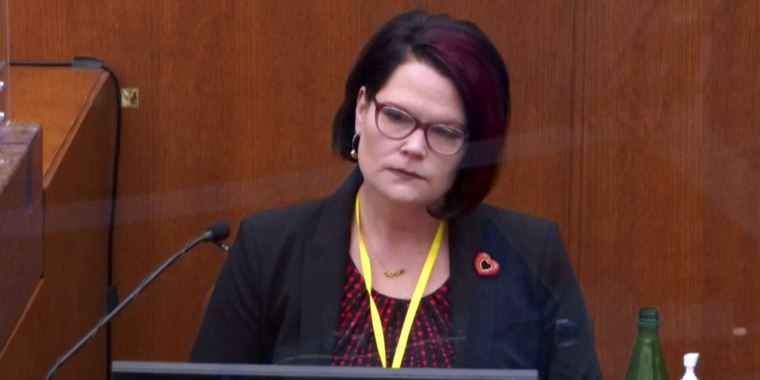
Spark-of-life testimony
Prosecutors tried to present a fuller picture of who Floyd was and undercut any argument that he died of a drug overdose through the testimony of his girlfriend, Courteney Ross.
Ross, 45, testified Thursday, through tears and giggles, about how she and Floyd met in August 2017 at a Salvation Army where he worked as a security guard. She said it was one of her "favorite stories" to tell. She also spoke at length about their shared opioid addiction.
"Both Floyd and I, our story, it's a classic story of how many people get addicted to opioids," she told prosecutor Matthew Frank. "We both struggled from chronic pain. Mine was in my neck and his was in his back."
She said they "tried really hard to break that addiction many times."
She also disclosed how devastated Floyd was when his mother died in May 2018.
Former Miami federal prosecutor David Weinstein said prosecutors used a legal doctrine called "spark of life" to call Ross to the stand. Since the late '80s, Minnesota has allowed spark-of-life testimony ahead of a verdict, Weinstein said.
"The jury is going to focus on what they can see. Murder victims can't talk," Weinstein said with regard to the significance of spark-of-life testimony. "Their testimony has to come out from people around them."
There were multiple reasons prosecutors had Ross testify about Floyd and his drug use. Among them, Weinstein said, was to undercut the defense's claim that Floyd died of a drug overdose and to argue that he had a high tolerance for opioids. It was also to humanize Floyd and for people to sympathize with how he became addicted to opioids.
He said the prosecution knew the defense was going to attack Floyd and his drug addiction and that having Ross discuss it "was very effective" because she was not "over the top."
"It was going to come out one way or the other," Weinstein said. "They anticipated this. It's always good to get ahead of something, and you don't want the jury to think you're hiding something from them."
Moriarty said Ross' discussion about Floyd's drug addiction and how it started "effectively took the sting out of the testimony by not leaving it to the defense."
"We know that George Floyd, like many Americans, struggled with an opioid addiction that began with prescription pills," Moriarty said. "Chances are many jurors know of someone who has dealt with that same struggle."
The defense was able to poke holes in some witness testimony this week, Weinstein said.
Nelson asked Ross about Floyd's pet name for her that was saved in his phone — which was "Mama." That called into question whether Floyd was calling out for his mother as he lay pinned to the pavement — as has been widely reported — or Ross.
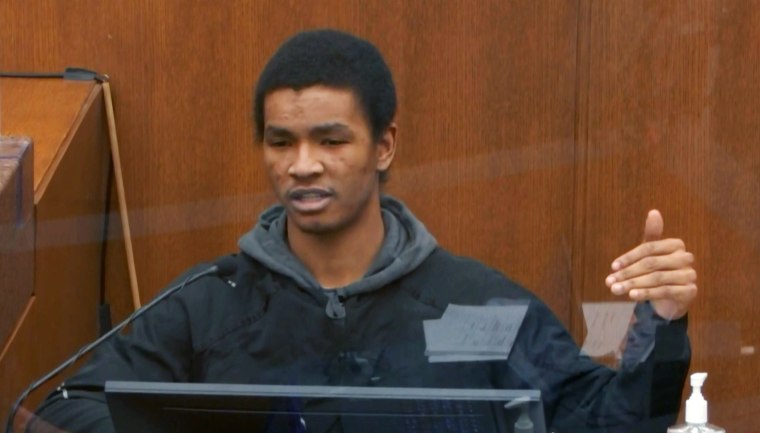
Security and other video
Security videos from inside Cup Foods made public for the first time Wednesday showed what happened before Floyd's deadly encounter with police.
The audio was withheld from the store video, which showed Floyd chatting and laughing with shoppers and employees as he moved around the store.
Christopher Martin, 19, the cashier who first confronted Floyd about the $20 bill, testified Wednesday that he felt "disbelief and guilt" when he saw Chauvin kneeling on Floyd's neck in front of the store after a co-worker called 911 and that he regretted flagging the bill.
"If I would've just not taken the bill, this could've been avoided," Martin said, as he reviewed video of himself outside the store with his hands over his head.
Weinstein said the testimony that was connected to the many videos and photos shown this week — including from police body cameras, security video and inside the ambulance, where paramedics attempted to resuscitate Floyd — "put the jurors right there in the middle of what was going on and gave them a full, working knowledge of what was taking place and then a look into the mind of the defendant when he was doing what he did, including the amount of time he had his knee on Floyd's neck."
Both Weinstein and Moriarty said they believe Nelson's claim that the crowd of onlookers — many of whom were shouting at Chauvin to get off Floyd — may have distracted officers and affected their response or posed a threat was unsubstantiated.
"I thought the defense might back off from that theory given that we were introduced to most of the spectators and we now know them to be ordinary people who simply wanted to help," Moriarty said.
On Friday, Zimmerman testified, "The crowd, as long as they're not attacking you, the crowd really doesn't, shouldn't, have an effect on your actions."
